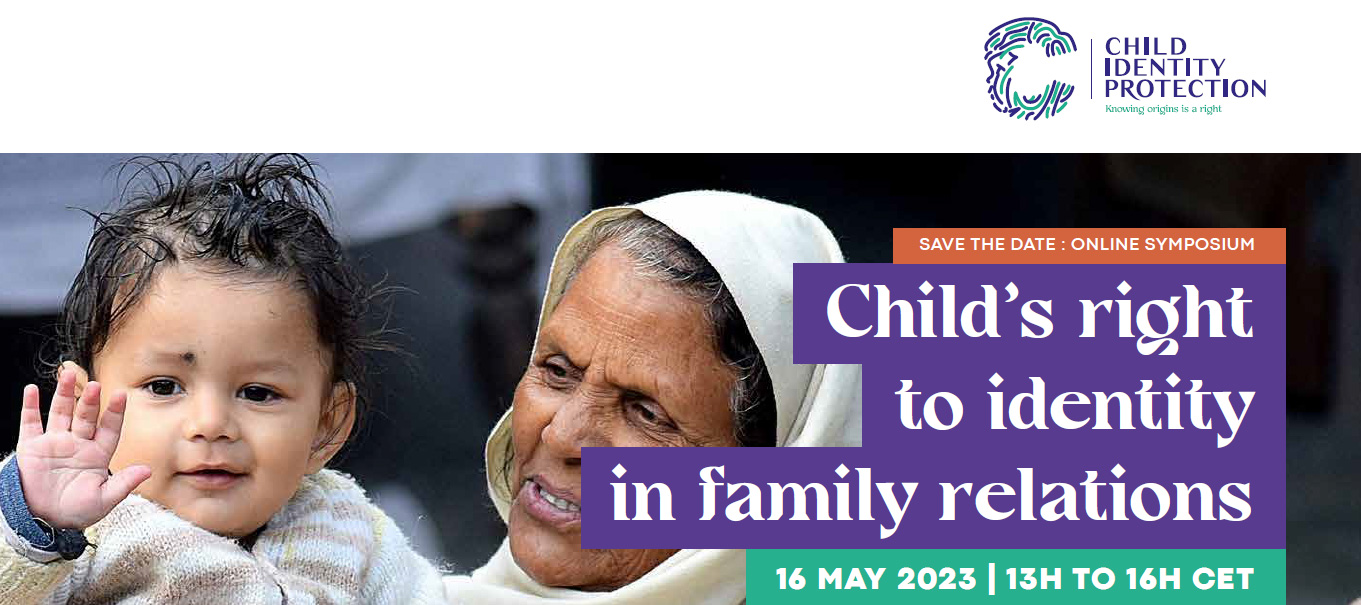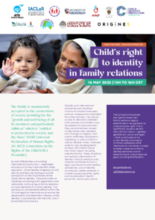
SAVE THE DATE: 16 MAY 2023 | 13H TO 16H CET
The family is unanimously accepted as the cornerstone of society providing for the “growth and well-being of all its members and particularly children” which is “entitled to protection by society and the State” (1948 Universal Declaration of Human Rights, Art. 16(3); Convention on the Rights of the Child (CRC), Preamble).
As part of festivities surrounding International Family Day – celebrated annually on 15 May since the 1993 UNGA resolution - Child Identity Protection (CHIP) with its partners are hosting an online symposium on the importance of the child’s family identity. The event builds on initiatives promoting birth registration and nationality, by focusing on family relations, a crucial element of a child’s identity. This symposium complements efforts within the UN and regional mechanisms to ensure the preservation and restoration of every child’s identity in accordance with the CRC, Arts.7-8 and SDGs 16.9 and 16.3.
Despite such international standards and initiatives, millions of children have been and are unnecessarily separated from their families. The natural course of interaction between birth parents and children may be severed, for example when they are abandoned, placed in alternative care, adopted, born through surrogacy, sold and/or trafficked, displaced or migrating, or when conflict or natural disaster arises. Moreover, systems may be designed to conceal information about the child’s origins including potential family. These situations can lead to a deprivation of identity in family relations with massive ramifications from a legal, psychosocial and medical perspective. Loss of identity can equally create obstacles in children accessing other rights such as education, health, economic, social and cultural.
The symposium explores the right to have one’s family relations legally established or recognised, as a stand-alone right. This is significant, as every person has a family history – genetic, gestational, social and legal – that contributes to his or her identity and origins. It further addresses what mechanisms should be in place to better preserve all family identity elements and re-establishment, when there are gaps including falsification.

